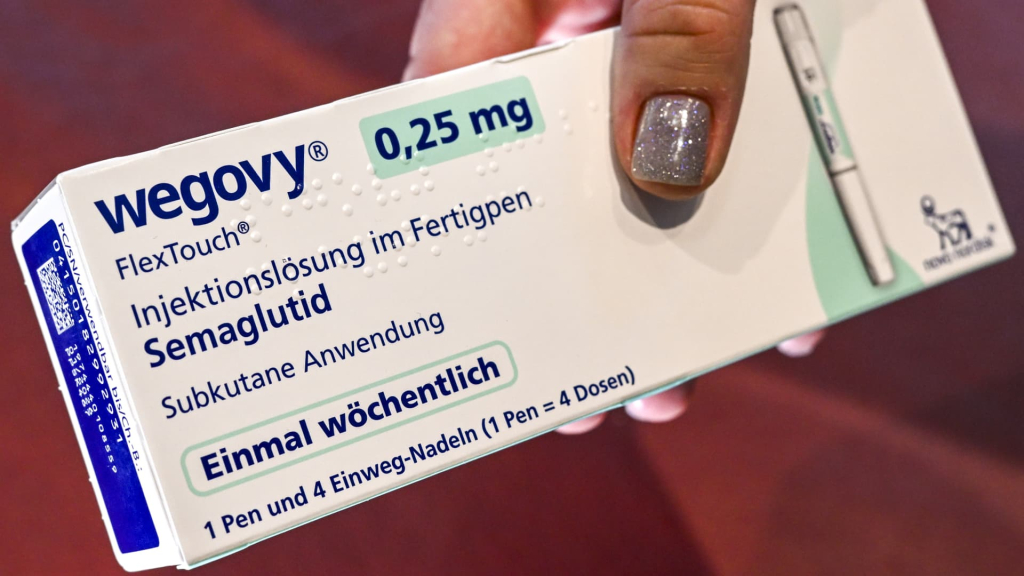Novo Nordisk announced on Monday that it will be discontinuing its partnership with Hims & Hers amidst concerns regarding the telehealth company’s promotion and sales of unauthorized, low-cost alternatives to its weight loss medication Wegovy.
As a result of the announcement, shares of Hims & Hers plummeted approximately 28%, while Novo Nordisk’s stock experienced a decline of more than 6%.
Earlier this year, in April, Novo Nordisk had expanded access to Wegovy by partnering with a number of telehealth firms including Hims & Hers, following the resolution of supply shortages in the U.S. market.
The resolution of the Wegovy supply shortfall meant that by May 22, compounding pharmacies became legally restricted from producing and selling unapproved, cheaper versions of the drug, with only rare exceptions permitted for certain medical conditions. Despite this, telehealth companies have indicated the potential need for customized compounded versions of Wegovy in specific patient scenarios.
However, Novo Nordisk asserted on Monday that Hims & Hers failed to comply with the legal requirements regarding the mass sale of compounded medications, which they claim was misrepresented under the pretense of personalization. The pharmaceutical company further accused Hims & Hers of engaging in misleading marketing practices that could jeopardize patient safety.
“We had anticipated that the measures concerning compounded personalization would gradually reduce, but when we observed the opposite, we had to make a decision that prioritizes patients,” stated Dave Moore, executive vice president of U.S. operations for Novo Nordisk, during an interview with Finance Newso. He emphasized that the company’s foremost priority remains patient safety.
“We expected that [Hims & Hers’] business model would pivot towards genuine, safe, and approved treatments,” Moore elaborated. He added that Novo Nordisk will not face any financial penalties from ending the collaboration, as the partnership had been established through an intermediary managing the drugmaker’s online pharmacy services.
A spokesperson for Hims & Hers could not be reached for immediate comment in response to CNN’s inquiry.
During a earnings call in May, Hims & Hers CEO Andrew Dudum emphasized the importance of offering choices to providers and patients regarding their treatment options. “Ultimately, what suits them should be based on their own judgment,” he remarked, stressing the necessity of maintaining independence in treatment selections.
Citi analyst Daniel Grosslight indicated in a note on Monday that the termination of the partnership significantly heightens Hims & Hers’ legal risks and expressed surprise that the initial agreement did not include measures to mitigate the telehealth company’s compounding practices.
Under FDA-declared shortages, pharmacists are allowed to create compounded versions of brand-name drugs. These can also be produced on a case-by-case basis when medically necessary, such as when a patient has difficulty swallowing pills or has allergies to specific ingredients in a branded medication.
Nevertheless, some pharmaceutical manufacturers and health experts have voiced strong opposition to this practice due to the FDA’s lack of approval for compounded drugs.
In its statement, Novo Nordisk affirmed its commitment to offering the branded version of Wegovy through telehealth organizations that align with its dedication to providing safe and effective medical treatments for patients suffering from chronic illnesses.
Moore noted that several other mass compounding pharmacies have either scaled back or ceased the production and sale of Wegovy knock-offs. He remarked that the company plans to take action both legally and in collaboration with the FDA to curb illegal compounding activities.
In a press release on Monday, Novo Nordisk shared that its investigation discovered that the active ingredients found in Wegovy alternatives sold by telehealth companies and compounding pharmacies were sourced from foreign manufacturers in China. Furthermore, the drugmaker referenced a report from the Brookings Institution published in April, which indicated that many of these Chinese suppliers had never been inspected by the FDA, and of those that had, several faced violations regarding drug quality assurance.
“The medicines entering our country from various global sources are not even sanctioned in the countries they originate from, and that is a significant concern,” Moore stated.


























